In the digital age, public relations professionals are constantly on the lookout for innovative tools to help them communicate effectively with their target audience. Chat GPT, a cutting-edge language model developed by OpenAI, is one such tool that is revolutionizing the field of PR. But what is Chat GPT? Will it steal our jobs? What if it provides misinformation or compromises our privacy? Fear not, we have scoured the internet, researched, and asked the infamous program itself, “What is it that makes Chat GPT an asset?”.
HOW DOES IT WORK?
Chat GPT uses artificial intelligence to generate human-like responses to text-based inputs. This program is the latest technology that has been on the minds of communicators and the media worldwide. Despite the worries and mixed opinions of this program, it is apparent that PR professionals can use Chat GPT to create compelling content, respond to customer inquiries, and even conduct virtual interviews. As the field of PR continues to evolve, Chat GPT will undoubtedly play an increasingly important role in shaping the future of communication.
WHAT ARE THE ADVANTAGES?
Artificial intelligence (AI) offers many advantages, such as increased efficiency, improved accuracy, and enhanced decision-making capabilities. AI-powered technologies can help automate repetitive tasks, allowing workers to focus on more complex and creative work. They can also process vast amounts of data and provide valuable insights that humans may miss. As AI continues to advance and become more accessible, it is likely that even more people will benefit from its advantages in the coming years. However, currently, AI services are being utilized by millions of people.
- Over 100 million individuals have used CHAT GPT since February of 2023
- 83% of AI users are reporting either moderate or substantial benefits from AI
- The number of AI-related job postings increased by 32% from 2019 to 2020, indicating a growing demand for workers with AI skills.
Communicators are no exception to the benefits AI has to offer. Here are some examples of the benefits that CHAT GPT provides:
Efficient Monitoring: AI-powered tools can monitor social media platforms, news websites, and other online platforms to detect mentions of a brand, a product, or a service. These tools can filter the results by sentiment, location, and language, allowing PR professionals to have a quick overview of how their brand is being perceived and where they need to focus their efforts. PR professionals can use AI algorithms to analyze large amounts of data and extract insights that would be difficult or impossible to uncover manually. These insights can inform PR strategies, help identify new opportunities and guide decision-making. AI-powered chatbots and virtual assistants can provide personalized responses to customer inquiries and engage with them in real-time.
Crisis Management & Scalability: AI tools can help PR professionals identify potential crises and take corrective actions before they escalate. For example, AI algorithms can monitor social media platforms for negative sentiment and alert PR professionals to take appropriate measures. PR professionals can use Chat GPT to respond to a large number of inquiries simultaneously, freeing up time to focus on other important tasks. Chat GPT can also be integrated with other tools, such as chatbots and virtual assistants, to provide a seamless customer experience across multiple channels.
Generating Quotes & Repitching: ChatGPT can help PR professionals and communicators by suggesting quotes that align with the messaging they are trying to convey. You can provide ChatGPT with the key message points and the tone you want to convey, and it can generate quotes that fit the bill. If a PR pitch is not working, ChatGPT can help by suggesting new angles or approaches take. You can provide it with the current pitch and any feedback you've received, and it can generate new ideas for how to present your message. Press releases, comments, and social media posts are just a few examples of the messaging and communication materials that ChatGPT may assist with framing. It can produce clear, succinct, and powerful language if you give it the main message points and any relevant background.
Creative Story Ideas & Personalization: ChatGPT can assist in coming up with creative story ideas that will help capture the attention of the media and the public. You can provide it with some background on the topic you want to promote, and it can generate fresh and innovative story ideas that are likely to get noticed. ChatGPT can help facilitate brainstorming sessions by generating a variety of ideas and prompts to get the creative juices flowing. You can ask ChatGPT to suggest ideas based on certain criteria, such as target audience, tone, or platform. This helps build stronger relationships with customers and enhance the customer experience. By analyzing past interactions and data, Chat GPT can tailor its responses to individual users, creating a more engaging and personalized experience. For communicators: building relationships with customers and stakeholders is critical.
WHAT ARE THE FEARS?
Whenever a new invention of technology is put in the public spotlight, a new fear follows. Artificial intelligence (AI) has been a topic of fascination and concern for many years. While some people see it as a tool for progress and innovation, others view it as a potential threat to humanity. Skeptics of AI often express fear and anxiety about the technology, citing concerns about its potential to become too intelligent, replace human jobs, and even take over the world. While Alita Battle Angel is an incredible movie, many AI concerns have been fueled by science fiction depictions of AI, as well as real-world examples of AI systems behaving unpredictably. Despite the potential benefits of AI, many skeptics remain apprehensive about its impact on society and the future of humanity.
- In 2018, around 72% of Americans expressed concerns about the use of AI, with many expressing worries about job displacement and loss of privacy.
- A study by the World Economic Forum found that 47% of the global workforce could be at risk of losing their jobs due to automation and AI.
Here are some common fears, and how you can successfully use AI despite them:
Lack of Emotional Intelligence, Context, and Accuracy: While AI-powered tools are excellent at data analysis and monitoring, they lack emotional intelligence, which is a critical component of PR and communications. PR professionals need to understand the nuances of human emotions to craft effective messaging that resonates with their target audience. AI algorithms can sometimes provide insights that lack context, making it challenging to make informed decisions. PR professionals need to be careful not to rely solely on AI-generated insights and use their judgment to interpret the data. PR professionals may worry that ChatGPT's responses may only sometimes be accurate or reflective of the organization's position on a given issue or topic. This could create confusion or misinformation among stakeholders, which could in turn lead to reputation damage.
Privacy Concerns: AI-powered tools can collect a lot of personal data, which raises concerns about privacy and data security. PR professionals need to be transparent about the data they collect and ensure that they comply with data protection regulations. PR professionals may worry about the security of information shared with ChatGPT, particularly if it involves sensitive or confidential information. There is a risk that this information could be compromised or accessed by unauthorized parties, which could have serious implications for the organization's reputation or operations.
Brand Messaging, Tone, and Context: PR professionals may worry that ChatGPT's responses could inadvertently conflict with or undermine their brand messaging or positioning. This could happen if ChatGPT generates responses that are inconsistent with the organization's values, voice, or mission. ChatGPT may not always understand the appropriate tone or context for a given situation or conversation. PR professionals may worry that ChatGPT could generate responses that are inappropriate or insensitive, potentially damaging relationships with stakeholders or the organization's reputation.
AGENCIES CHANGING THE GAME
O.H. Partners, an advertising agency in Phoenix, Arizona is taking the first steps to involve artificial intelligence in everyday work. Many employees are utilizing AI programs, specifically Chat GPT to enhance created work, brainstorm, research, and more. Executives at O.H. made the decision to jumpstart AI by putting together a task force...and integrate it into their everyday work across departments and disciplines, from project management and data analyzation to creative concepting.
“We decided to create a task force to understand further and engage with not only ChatGPT, but the numerous AI programs that currently exist,” said Meagan Jackman, president and chief marketing officer of O.H. Partners.
At O.H. Partners, we believe it’s not AI that will take over your job. It’s the person who knows AI that will.
“AI is going to change the entire content creation landscape in our industry–rewarding those who do great work, while weeding out those who may not be as nimble, proficient or next level,” said Scott Harkey, founder and owner of O.H. Partners.
Want to know more about how you can tailor AI to your brand? Drop us a line and we will set up a time to connect.

